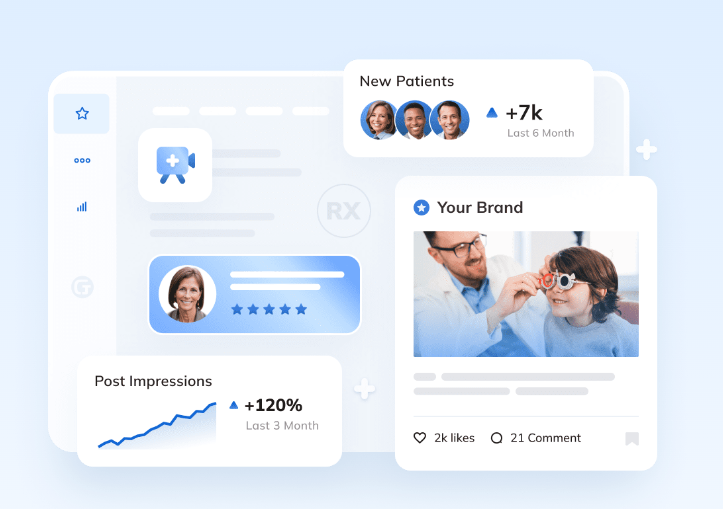Health Tech Marketing: Innovating Healthcare Through Strategic Communication

In the realm of healthcare, technology is rapidly transforming how services are delivered and received. Health tech, a burgeoning sector at the intersection of healthcare and technology, relies heavily on effective marketing strategies to drive adoption and innovation. This article explores the pivotal role of marketing in health tech, examining key trends, challenges, and strategies that shape this dynamic field.
The Landscape of Health Tech
Health tech encompasses a broad spectrum of innovations, ranging from telemedicine platforms and wearable health monitors to AI-driven diagnostic tools and blockchain-enabled health records. These technologies aim to improve patient outcomes, streamline processes, and enhance the overall efficiency of healthcare delivery. With the global health tech market projected to grow exponentially, effective marketing becomes crucial in differentiating products, gaining market share, and building trust among stakeholders.
Key Trends in Health Tech Marketing
-
Personalization and Patient-Centric Approaches: In an era where patient empowerment is paramount, successful health tech marketing campaigns focus on personalized experiences and solutions. Tailored messaging that addresses specific pain points and preferences resonates more deeply with both patients and healthcare providers.
-
Data-Driven Insights: Utilizing data analytics not only informs marketing strategies but also enhances product development. Understanding consumer behavior, market trends, and outcomes data enables health tech companies to refine their offerings and better meet the needs of their target audience.
-
Emphasis on Education and Trust: Given the complexity of health tech solutions, marketing efforts often prioritize educational content. Clear, transparent communication about the benefits, risks, and functionalities of these technologies builds credibility and fosters trust among users and healthcare professionals alike.
-
Integration with Healthcare Ecosystems: Collaborations with healthcare providers, insurers, and regulatory bodies are increasingly vital for health tech companies. Marketing strategies that emphasize seamless integration into existing healthcare ecosystems can accelerate adoption and facilitate scalability.
Challenges Facing Health Tech Marketers
Despite the promising opportunities, health tech marketers face several challenges:
-
Regulatory Compliance: Navigating complex regulatory landscapes across different geographies requires meticulous planning and adherence to stringent guidelines. Marketers must ensure that their messaging complies with local laws and regulations to avoid legal repercussions.
-
Data Privacy Concerns: As health tech involves sensitive patient information, maintaining robust data privacy and security measures is non-negotiable. Addressing consumer concerns about data protection through transparent communication is essential for building trust.
-
Market Fragmentation and Competition: The health tech market is highly fragmented, with numerous players offering diverse solutions. Standing out amidst competition requires innovative marketing strategies that highlight unique value propositions and demonstrate tangible benefits.
Strategies for Success
-
Targeted Digital Marketing Campaigns: Leveraging digital channels such as social media, search engine optimization (SEO), and content marketing allows health tech companies to reach specific demographics effectively. Engaging content that educates and informs can attract and convert leads into loyal customers.
-
Thought Leadership and Industry Partnerships: Establishing thought leadership through webinars, whitepapers, and participation in industry conferences enhances credibility and visibility. Collaborating with key opinion leaders and forming strategic partnerships can amplify reach and credibility in the healthcare community.
-
Continuous Adaptation and Innovation: The landscape of health tech is constantly evolving. Marketers must stay agile, monitoring industry trends and consumer preferences to adapt their strategies accordingly. Embracing innovation in both technology and marketing tactics positions companies as frontrunners in the competitive market.
Conclusion
In conclusion, health tech marketing plays a pivotal role in driving innovation and transforming healthcare delivery. By embracing personalized approaches, leveraging data-driven insights, and fostering trust through educational content, health tech companies can navigate challenges and capitalize on opportunities in this dynamic industry. As the sector continues to evolve, strategic marketing will remain essential in shaping the future of health tech and improving global healthcare outcomes.
- Industry
- Art
- Causes
- Crafts
- Dance
- Drinks
- Film
- Fitness
- Food
- Games
- Gardening
- Health
- Home
- Literature
- Music
- Networking
- Other
- Party
- Religion
- Shopping
- Sports
- Theater
- Wellness
- News


